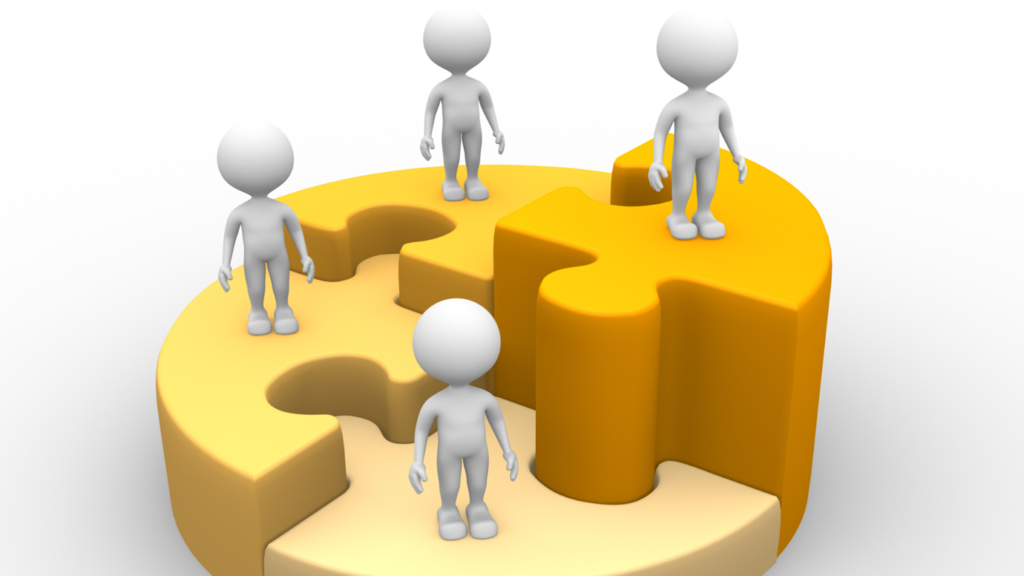History of IQ Testing: Origins to Significance
Discover the strange history of IQ testing to assess its significance. Intelligence testing has impacted our knowledge of cognition and human potential since its inception. Expect a fascinating history of this statistic and its social effects.
IQ testing pioneer Alfred Binet conducted groundbreaking research in the early 1900s. We’ll trace its history from educational institutions and occupational evaluations to standardized testing. IQ score interpretation and use will be explained, and myths will be crushed.

IQ testing’s pros and cons will be discussed in this article. Join us as we examine the complicated network of historical events and groundbreaking studies that have illuminated the human mind. Consider whether you’re ready for this educational voyage through time. Time to jump in now.
First Steps to Assessing Cognitive Ability
When intelligence testing became popular in the early 20th century, it began. In 1905, French psychologist Alfred Binet created the first intelligence test. Mental age—a child’s average cognitive development for their chronological age—is measured using Binet’s test. Novel approach identified children who may require further education.
In Binet’s test, children were tested on language, logic, memory, and problem-solving. Binet compared a child’s scores to their classmates’ to determine mental age. This groundbreaking research led to growing interest in intelligence testing.
Binet’s test defect acknowledgement is notable. He noted that intellect is complex and hard to measure. Binet intended to identify struggling children, not design a standard IQ test.
Stanford-Binet Intelligence Test
The 1916 Stanford-Binet Intelligence Scale changed IQ testing. Stanford psychologist Lewis Terman updated Binet’s exam. The Stanford-Binet test introduced the Intelligence Quotient (IQ), a numerical measure of IQ compared to peers.
Terman’s test added tasks and increased scoring over Binet’s. Researchers divided chronological age by mental age and multiplied by 100 to calculate IQ. This method allowed us to consistently compare IQ across age groups.
The Stanford-Binet quickly became the standard IQ test. Its widespread use in schools and the military has made it a regular intelligence assessment approach. This test has been modified numerous times to reflect social and cultural changes to be relevant in today’s environment.
Early Modern Intelligence Quotient Test Improvement
IQ tests were popular in the early 1900s. These tests helped governments, schools, and companies identify talented kids and those who needed more help in class. The assumption that IQ scores predicted a person’s ability to succeed in various fields led to the classification of people into intellectual categories.
Many population- and task-specific intelligence tests emerged from the growth of IQ testing. These tests assessed verbal, mathematical, and spatial intelligence. The Wechsler Adult Intelligence Scale (WAIS) and WISC are common multi-level intelligence examinations.
The early 20th-century eugenics movement also depended on IQ testing. Eugenics advocates believed that high-IQ people should procreate while low-IQ people should be discouraged to better society’s genetic makeup. The mistaken belief that IQ controlled human reproduction led to discriminatory behaviors and policies.
Disavowals and IQ Exam Debates
Despite its widespread use, intelligence testing has been criticized. Concerns about cultural bias in these assessments are high. Due to their significant use of cultural and language references, IQ tests may benefit certain groups. This raises questions about whether IQ testing are a valid and fair tool to assess intelligence across populations.
Some believe that IQ testing don’t assess practical, emotional, or creative intelligence. No test can accurately evaluate IQ since it’s complex. Due to exam anxiety, motivation, and socioeconomic status, IQs don’t necessarily reflect talent.
IQ tests in schools and the workplace are controversial. Many argue that employing IQ testing for admittance and employment can prevent disadvantaged people from rising in their careers. Success requires multiple skills, but focusing on one measure of intellect risks disregarding them.
New Intelligence Assessments
Recent trends have broadened the definition of intelligence. Scientists and mental health experts have long recognized that intellect is dynamic and complicated. Because of this, extra-IQ tests have evolved.
One method is Howard Gardner’s multiple intelligences hypothesis. Gardner lists language, musical, spatial, bodily-kinesthetic, interpersonal, intrapersonal, and naturalistic intelligence. This ideology encourages and develops all sorts of intelligence, recognizing that people are capable of different things.
Another new field of study, emotional intelligence, involves understanding and managing your emotions. Emotionally intelligent people can recognize and comprehend themselves, empathize with others, and manage relationships. This holistic perspective of intelligence recognizes emotional and social intelligence’s role in life’s obstacles.
The Value of IQ Tests in the Classroom and Workplace
Despite the criticism, intelligence testing is still widely employed in school and employment. School placement, gifted programs, and special education help use IQ tests to predict academic success. Industry that values intelligence and analytical thinking may use intelligence tests to hire.
One must be mindful of the limitations of employing IQ tests in such scenarios. Motivation, ambition, and social graces are as crucial as IQ in completing goals. Educational and employment systems should use more elements to assess potential fairly and inclusively.
Cognitive and cultural preferences questionnaires
Cultural prejudices may alter IQ test scores, a major argument against them. People who devised traditional IQ tests may have used language, attitudes, and experiences from their own culture. This may disfavor anyone unfamiliar with the test’s cultural connotations.
We have tried to address these biases and create culturally fair assessments. Culturally fair tests help test takers from various backgrounds understand and perform effectively. These tests reflect each test taker’s experiences and expertise.
Different Intelligence Assessment Tools
Different intelligence exams strive to capture more diverse skills, and there are various schools of thought. Performance-based evaluations like portfolios and project-based assignments can expose a person’s capabilities and abilities. Candidates must demonstrate their talents in real-world situations on these assessments.
Additionally, subjective judgments by professors and pupils may reveal an individual’s intellectual strengths and weaknesses. In addition to IQ, these exams measure creativity, critical thinking, and cooperation.
Final Thoughts on IQ Testing Controversy
This metric has had a significant impact on how we perceive intelligence, and we are now coming to the end of our tour of the origins and significance of intelligence testing. In the past, intelligence tests have had an impact on schooling, hiring practices, and worries regarding human potential.
It is important to be aware of the limitations and cultural biases associated with IQ testing, despite the fact that it contributes to the process of identifying cognitive ability. No single test can adequately capture all of the facets that make up intelligence. Enhancing intelligence comprehension and promoting evaluations that are equal and inclusive can be accomplished through the use of alternative tests and theories that acknowledge human attributes.
Studying human intelligence involves keeping an open mind and challenging existing paradigms. To truly grasp the vast range and endless potential of the human mind, we must ensure that research and discussions on intelligence continue indefinitely.
tests and integrating them into a full intelligence setup.



